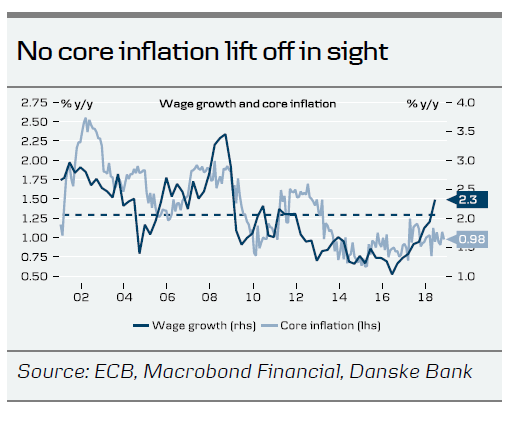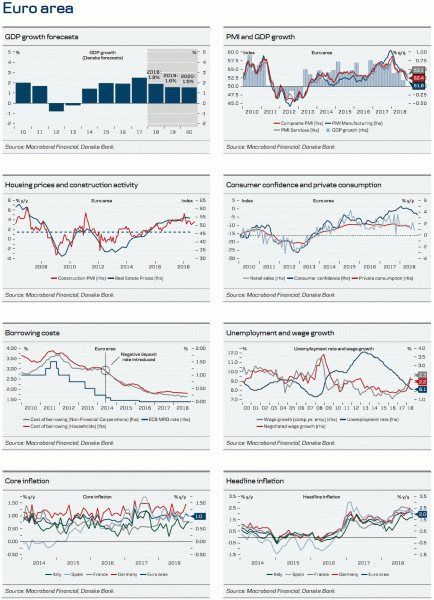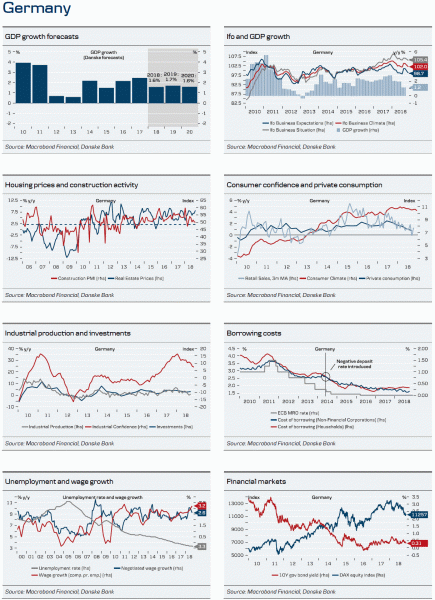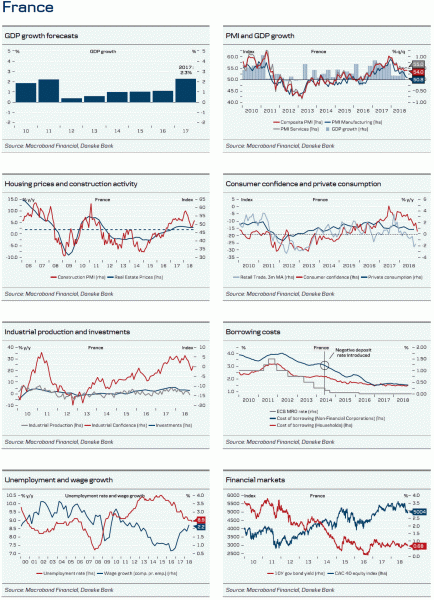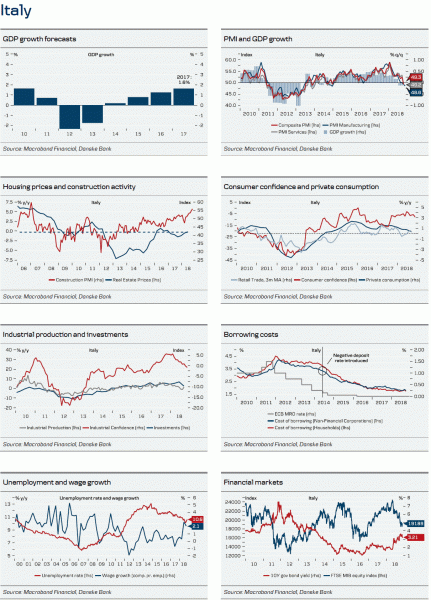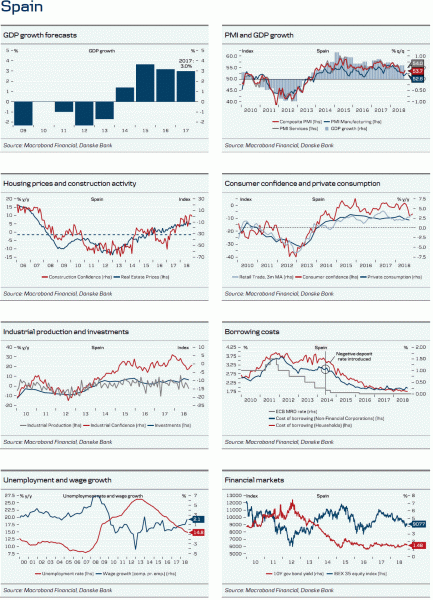Key points
- Recent growth weakness spills over to Q4 activity.
- Data-driven ECB looks increasingly challenged in growth and core inflation optimism.
- Italy’s budget fight with the EU moved one step closer to an excessive deficit procedure
The cyclical divergence between the US and Europe continues, as November euro area PMIs did not signal the rebound in growth momentum that markets were hoping for. Instead, with composite PMI falling to a four-year low, it looks like some of the Q3 euro area growth softness is set to persist in Q4. Manufacturing remains the main area of weakness amid slower global demand, rising political and economic uncertainty, trade war repercussions and persistent sluggish car sales. However, the slowdown is also broadening out to service sector activity, where demand and new business inflows have waned as of late. Although we think darker clouds are on the horizon for the euro area, domestic demand should compensate some of the external headwinds. We expect GDP growth to remain above potential in 2019 at 1.6% and similarly, project the German economy not to be out of steam yet, although growth has probably peaked.
November HICP inflation fell back below 2% for the first time since May this year, as the boost from higher energy prices increasingly starts to wane. A slowdown in headline inflation was widely expected, but core inflation declining back to 1.0% (-0.1pp) in November was a clear disappointment, as higher wages yet have to show up in durably higher services prices. However, we expect a strong Q3 wage growth number to keep ECB’s inflation confidence alive. That said, macro data is increasingly challenging the ECB’s ‘balanced’ growth assessment and its belief in temporary factors being behind the recent slowdown, although we do not expect it to derail the QE exit strategy at the 13 December meeting. A downward revision of the 2018 and 2019 growth and core inflation forecasts looks increasingly warranted.
Italy’s budget fight with the EU moved one step closer to an excessive deficit procedure (EDP), after Italy refrained from any meaningful changes in its budget plan. Negotiations between Rome and Brussels continue in the background, but there remains a significant spending gap to bridge with the Italian leaders unwilling to scale back their respective flagship policies. Hence, we still see a high likelihood for further confrontation and a formal EDP launched towards the end of the year or early 2019. Meanwhile signs that the Italian economy is tanking are becoming more abundant by the day: GDP contracted by 0.1% q/q in Q3, while both manufacturing PMI (48.6 – now in contractionary territory) and consumer confidence edged down further in November. The government is looking for growth of 1.2% this year. To reach that goal, the economy would need to grow 0.7% q/q in Q4, but recent data shows such a growth spurt – which also happened only once over the last decade – is unlikely to materialise.
There have been other interesting developments on the European politics front: Germany’s Manfred Weber secured the backing of the largest European parliament faction (EPP) as Spitzenkandidat for the job as Commission President, as the contest for EU elections starts gathering momentum. In German politics, ‘mini-Merkel’ AKK is increasingly looking like the frontrunner in Merkel’s succession race. Progress on EMU reforms remains sluggish, but French and German finance ministers renewed their push for a separate euro area budget to enter force in 2021 and to be discussed at the EU summit in December.

